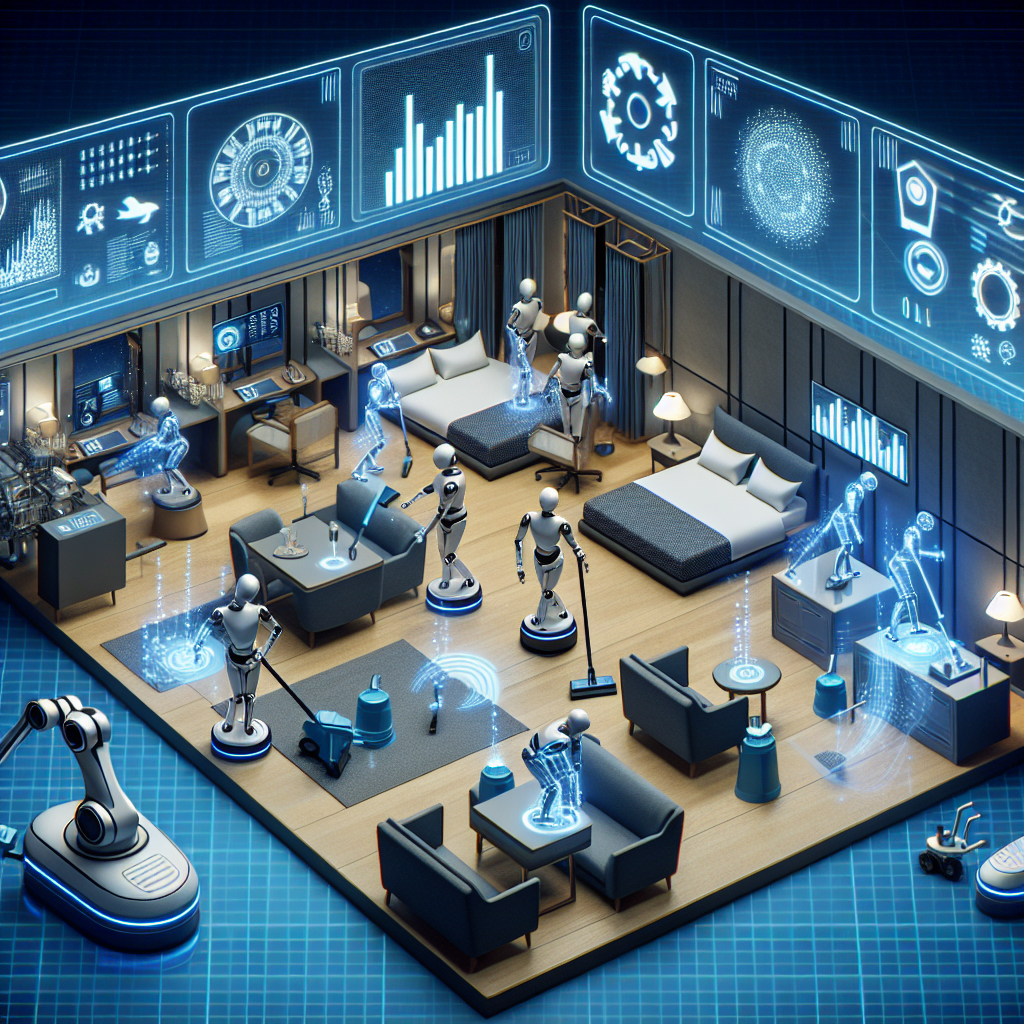In recent years, the hospitality industry has seen a significant increase in the use of artificial intelligence (AI) and robotics to improve housekeeping and cleaning services in hotels. These technologies have revolutionized the way hotels maintain their properties and have helped to enhance the overall guest experience. From automated cleaning robots to AI-powered scheduling systems, the integration of these technologies has made hotel operations more efficient and effective.
One of the most significant advancements in AI and robotics in the hospitality industry is the development of automated cleaning robots. These robots are equipped with sensors and cameras that allow them to navigate through hotel rooms and common areas, detecting and cleaning up dirt and debris along the way. They can also be programmed to perform specific cleaning tasks, such as vacuuming, mopping, and dusting, without the need for human intervention.
By using automated cleaning robots, hotels can reduce the time and effort required for housekeeping tasks, allowing staff to focus on other important guest services. These robots are also effective in improving the cleanliness and hygiene of hotel rooms, as they are able to clean hard-to-reach areas and remove germs and bacteria more effectively than traditional cleaning methods.
In addition to automated cleaning robots, AI-powered scheduling systems have also been implemented in hotels to optimize housekeeping and cleaning services. These systems use algorithms to analyze room occupancy rates, guest preferences, and staff availability to create efficient cleaning schedules. By using AI to schedule housekeeping tasks, hotels can ensure that rooms are cleaned in a timely manner and that staff are utilized effectively.
Furthermore, AI and robotics have also been used to enhance maintenance operations in hotels. For example, predictive maintenance systems can analyze data from sensors and equipment to predict when maintenance tasks will be needed. This allows hotels to schedule maintenance proactively, reducing downtime and minimizing the risk of equipment failures.
Overall, the integration of AI and robotics in housekeeping and cleaning services and maintenance operations has enabled hotels to improve efficiency, reduce costs, and enhance the guest experience. By leveraging these technologies, hotels can ensure that their properties are clean, well-maintained, and welcoming to guests.
FAQs:
1. How do automated cleaning robots work?
Automated cleaning robots are equipped with sensors and cameras that allow them to navigate through hotel rooms and common areas. They can detect dirt and debris and perform cleaning tasks such as vacuuming, mopping, and dusting without the need for human intervention.
2. Are automated cleaning robots effective in cleaning hotel rooms?
Yes, automated cleaning robots are effective in cleaning hotel rooms. They are able to clean hard-to-reach areas and remove germs and bacteria more effectively than traditional cleaning methods.
3. How do AI-powered scheduling systems optimize housekeeping tasks?
AI-powered scheduling systems analyze room occupancy rates, guest preferences, and staff availability to create efficient cleaning schedules. This ensures that rooms are cleaned in a timely manner and that staff are utilized effectively.
4. How do predictive maintenance systems work in hotels?
Predictive maintenance systems analyze data from sensors and equipment to predict when maintenance tasks will be needed. This allows hotels to schedule maintenance proactively, reducing downtime and minimizing the risk of equipment failures.

